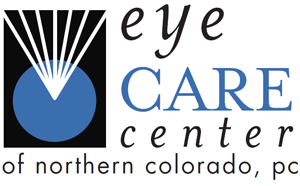With all the additional time you’ve been spending on screens since the start of the COVID-19 pandemic, you might’ve noticed a change in your eyes.
Many people spending hours in front of a screen every day have experienced dry eyes, eye fatigue, and headaches. This isn’t a coincidence: these are symptoms of a new condition called digital eye strain.
One study spoke with people who are suddenly spending several more hours in front of a screen because of remote work. 85% complained of more digital eye strain with the increase in screen time.
If you’re experiencing eye discomfort from screen use, you’re probably searching for answers.
Blue light glasses have become a popular solution. Sales of blue light glasses have more than doubled during the pandemic as people are searching for a way to ease eye fatigue and are wary of screens doing damage to their eyes.
But the research behind blue light glasses is mixed, and you might be wondering if blue light glasses work.
Here’s what blue light glasses do, how they impact your vision, and how you can relieve eyes tired from so much screen time.
Symptoms of Digital Eye Strain
Many people spending hours on screens have been complaining of a condition now called digital eye strain, also known as computer vision syndrome.
The symptoms of digital eye strain include:
- Eye pain
- Eye fatigue
- Dry eyes
- Headaches
- Blurred vision
- Sensitivity to light
- Difficulty keeping your eyes open
Digital eye strain happens because your eyes work harder to take in the information on screens.
When you need to use screens to work, complete personal tasks, and connect with loved ones, dealing with digital eye strain can be a real problem. It can make it harder to focus and get things done.
Many people have blamed digital eye strain on blue light coming off of devices.
What is Blue Light?
You might remember learning about the spectrum of light back in school. All the light you see is a combination of various colors of light, from red to green to violet.
Right now, the color light getting all the attention is blue. Blue light is everywhere, and screens give off blue light, too.
In moderation, blue light isn’t harmful to your eyes or your health. But you might be concerned that taking in so much blue light from hours spent in front of a screen is damaging to your eyes.
Some sources have warned that blue light can cause degeneration of your eyes and vision problems. It’s spooked people into wanting to reduce the amount of blue light hitting their eyes every day.
That’s why blue light glasses were invented, and why they became so popular.
How Do Blue Light Glasses Work?
Blue light-blocking glasses have a special filter that prevents blue light coming off of screens from reaching your eyes.
Earlier versions of blue light filter glasses were large, yellow-tinted glasses or clip-on lenses. You might remember a grandparent or older relative wearing night driving glasses.
Night driving glasses are actually blue light-blocking glasses — they work by filtering blue light, making it easier to see while driving at night.
As people became more concerned about the risk of blue light coming from screens, blue light filters became available on more versatile and fashionable pairs of glasses.
Now you can even get blue light-blocking prescription glasses. This is an added blue light filter put onto your regular prescription glasses.
You can also get blue light glasses without prescription lenses. You can wear these while using your devices, then take them off when you’re done.
With blue light glasses suddenly so popular, you might be wondering: do they really work?
Do Blue Light Glasses Really Work?
Blue light glasses do in fact reduce the amount of blue light hitting your eyes when you use screens. But there are mixed reviews as to how effective they are at reducing the uncomfortable side effects of digital eye strain.
Several studies have shown that blue light glasses are not effective in reducing the symptoms of digital eye strain. Those studies show no difference in headaches, eye fatigue, and dry eyes for people who wore blue light protection glasses compared to people who didn’t.
But some personal accounts argue the opposite. Some people say that wearing blue light glasses while using screens reduces headaches and eye fatigue.
More research is needed, but it might be up to personal preference. You might want to try blue light glasses out for yourself to see if you notice a difference.
Most importantly, we’ve learned through this research that blue light from screens is unlikely to cause permanent damage to your eyes. This is great news — it means you’re unlikely to have long-term eye or vision problems from spending time on screens.
But there is another downside to consuming so much blue light: it can mess with your sleep cycle.
Blue light sends stimulating signals to your brain that tell it to stay awake. Your brain interprets blue light like it’s sunlight. When it sees a lot of sunlight, it thinks it’s still daytime and prevents you from getting tired.
When you use screens at night and especially right before bed, this can make it harder to fall asleep.
Wearing blue light glasses, especially at night, can help ease you into sleep.
So while blue light-blocking glasses may or may not help reduce eye fatigue and digital eye strain, they can definitely help you get a better night’s rest.
Eye Care Center of Northern Colorado has a great selection of glasses to fit your vision needs. We carry top brands, including Ray-Ban, Kate Spade, and Ovvo Optics.
Most of our glasses can be fitted with a blue light filter to make screen work easier on your eyes — and to help improve your sleep cycles.
If you’re feeling the pains of digital eye strain, blue light glasses may help you feel better. But there are also plenty of changes you can make at home to reduce discomfort and protect your eyes.
How to Protect Your Eyes From Too Much Screen Time
If your eyes are feeling strained, fatigued, dry, or uncomfortable with all the time you’re spending in front of screens, there’s a lot you can do to find relief.
Simple adjustments to the settings of your computer can make a big difference. You can also give your eyes frequent breaks from the screen to allow them to relax.
And of course, you’ll want to make sure your prescriptions for contacts and glasses are up to date so your eyes aren’t straining to see clearly.
Read all of our tips for keeping your eyes healthy in front of your devices.

